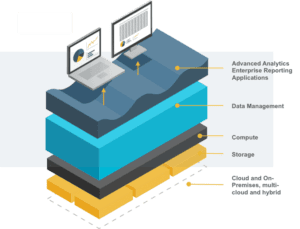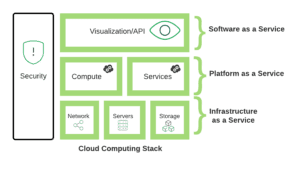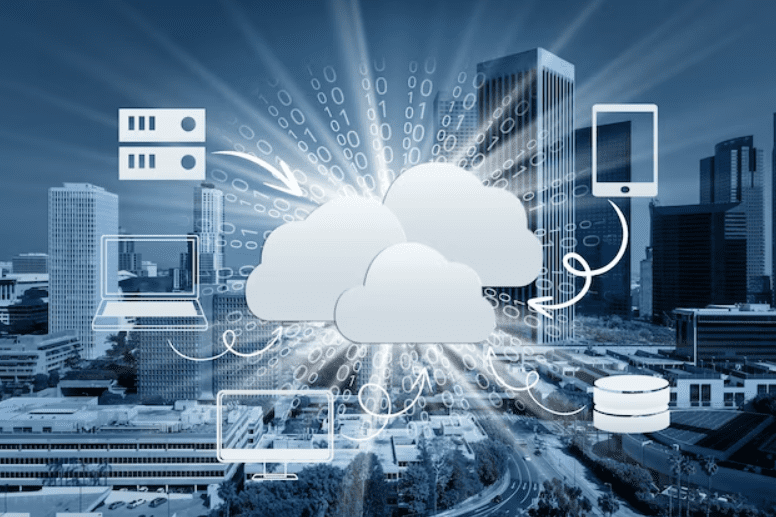Introduction
The nature of technology reflects a gradual shift towards leaner, affordable and resilient innovation. The conversion of LAN-based internet access into remote access to 5G internet has made the approach to new information smarter. This change in computing data storage devices from bulky hard drives to cloud storage. Every transformation and innovation story relates to the changing human needs. Multi-Cloud is an effective tool for future business offering cheaper storage for databases to save data. Similarly, the multi-cloud use is diverse and unique and showcases the future applicability of multi-cloud computing.
The role of multi-cloud computing systems and processes will transform to deliver future applications aiming to change business propositions. The future of cloud computing is now hybrid and multi–cloud computing applications. The future holds more promises and new innovations within multi-cloud computing.
Future Applications of Multi-Cloud
The future holds promises for multi-cloud computing to be developed in Next-Gen business platforms. Hence organizations are re-inventing their product platform and service delivery based on multi-cloud computing. Significantly need to adapt to safe working environments where data is created daily, multi-cloud computing techniques hold future applications. The difference between conventional and multi-cloud storage is the flexibility of business adoption.
Diverse Product and Service Application Utility
The recent projections conducted by IBM Survey showcase that Covid-19 jitters and uncertainty in the physical workspace have accelerated the demand for multi-cloud business presence for global organizations. This is in response to creating a risk-free business to cope with future pandemics and disasters. Multi-cloud enables businesses to operate with high precision that effectively manages services and applications. The resultant use of multi-cloud offers risk-free business and better profitability. The operational cost of running a product or services on multi-cloud computing boosts the application profitability of running the business.
The multi-cloud applications help organizations scale up the deployments that may be required to enter into a new market as per the demand. As illustrated in Figure 02, businesses are using multi-cloud architecture for a variety of purposes to effectively diversify their product and services. It is evident that multi-cloud applications are offering greater freedom to businesses to increase their efficiency.

Independence Nature of Business
The new mantra of working within the global IT business is Independence first; which means zero vendor lock-in along with a function of high integration whenever demand arises. The multi-cloud computing renders the organizational approach independent yet offered multiple vendors to select from, resulting in the use of the best possible vendor without any last-minute vendor lock-in. The future selection criteria for cloud computing is the independent nature of services offered to organizations that improve the space for course correction and innovation in vendor selection.
Automation First
IT firms around the world are looking towards automated work processes. The pandemic period was a reminder to the IT sector that certain part of the business works best when automated. The use of Multi-Cloud computing systems enables organizations to automate access to the information stored centrally on the cloud, making it approachable to everyone irrespective of remote locations. Multi-cloud computing offers built-in functions that help run and optimize the business activities by it, therefore helping the organization to function automatically if the employees are fewer as well. This is in sync with the future work policies wherein technology is replacing man-enabled applications and services such as driverless cars, drones, or the use of robots.
Technology Stacks
Cloud-computing stacks are a technology comprised of layers of cloud-computing services and components that creates individual application like a stack. The organization thus requires to obtain services based on stacks to gain maximum productivity from a single vendor The multi-cloud selection enables organizations to not indulge in vendor lock-in. Thereafter the stacking technology of multi-cloud enables organizations to work on scalability and ensure network stability offering a high degree of services. Surely, the business preferences using multi-cloud stacking will run the service components based on the vendor’s expertise. It will also aim to develop effective productivity by analyzing detailed workflow patterns and tracing the delivery speed of the products and services.

Summarization
- It is evident that the future of the computing business is hooked to multi-cloud computing systems and processes.
- Organizations across the IT sector and associated areas are adapting to the working functionality based on multi-cloud system networking.
- The effectiveness of multi-cloud computing for the future is perfectly aligned with new business development.
- Therefore organizations developing products and services are to be deployed on the multi-cloud system only to enhance customer outreach.
- The future is about managing the terabytes of data that requires multi-cloud management and computing systems.
- Multi-cloud computing enables the availability of technology stacks coupled with automation features.
- Therefore marking multi-cloud computing as perfect for future applications and being the next face of cloud computing technology.






